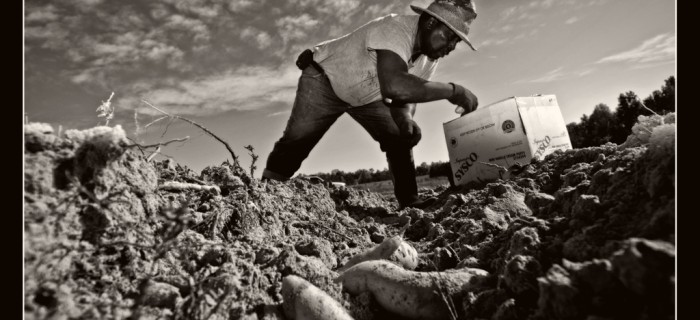The Hunger of Reproach: Is there hope for our food system?
I once sat with farmers at a long table during a Bizkaia winter, warming up with a flaming carajillo, trying to keep my wits in the steep, unforgiving drizzle of the Basque country. A grizzled sheepherder listened wordlessly to my proposals for action-research on how farmers practice food sovereignty, a call for the radical democratization of the food system. Suddenly, he slapped his hand on the table; “Stop studying the poor!” he bellowed, “Study the rich!”
His meaning was clear: “We farmers can take care of ourselves if you get the rich off our backs.”
These days, everyone is concerned about income inequality and the mega-rich. Presidential candidates, voters across the political spectrum – even Hollywood and corporate billionaires are talking about it.
David Rieff’s new book, The Reproach of Hunger: Food, Justice and Money in the Twenty-first Century adds to the conversation by offering a wide-ranging analysis of how the rich define “progress” and why their proposals to end hunger are based more on technological faith than science, and on hubris rather than empathy. This book takes on the heroic assumptions behind the calls for international economic development, and in doing so, skewers the sector’s neoliberal champions from academia, science, industry—and big philanthropy.
My Basque farmer friends would certainly approve.
The Reproach of Hunger is a “millennial edition” to the many critical tomes about the failings of development—this time framed by climate change, high food prices, economic inequality and the social myopia of the uber-rich. Rieff denounces the idea that we can end hunger by spreading the North’s technological bounty to the underdeveloped South. He challenges the premise that things are improving due to technology and development, and asks whether under current conditions ending hunger is even possible. Read more on the Huffington Post.
Stay in the loop with Food First!
Get our independent analysis, research, and other publications you care about to your inbox for free!
Sign up today!


 Help Food First to continue growing an informed, transformative, and flourishing food movement.
Help Food First to continue growing an informed, transformative, and flourishing food movement.




